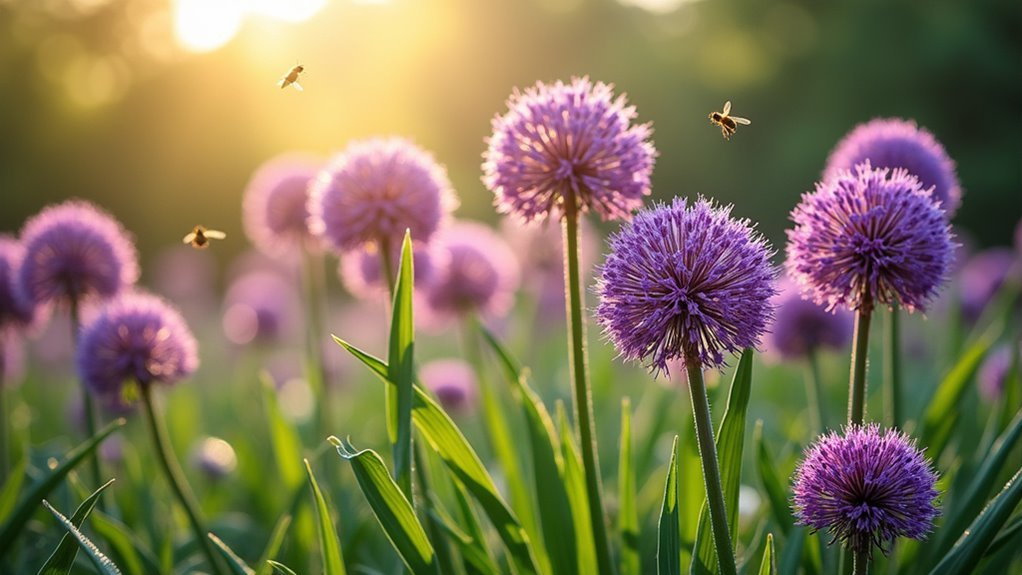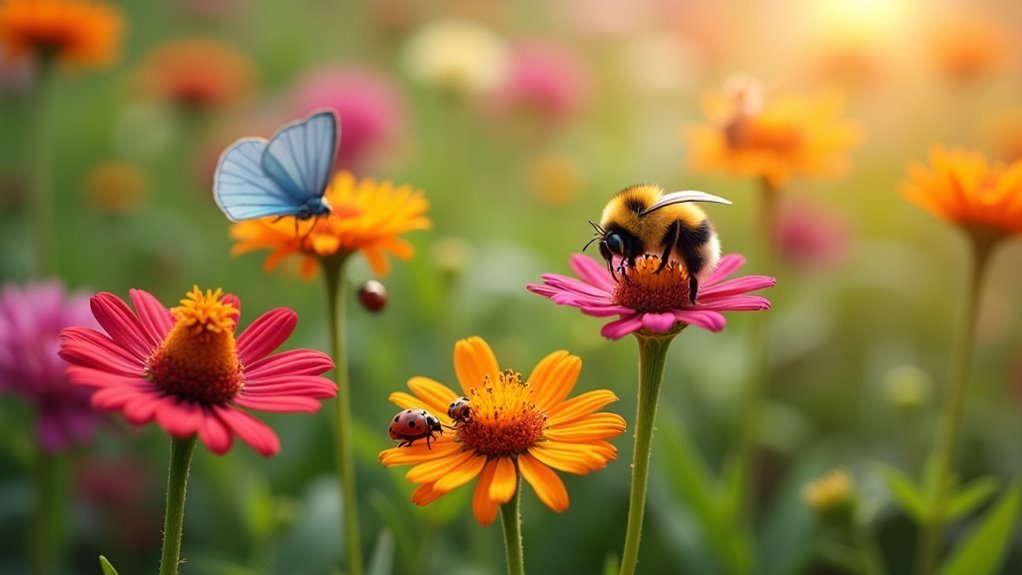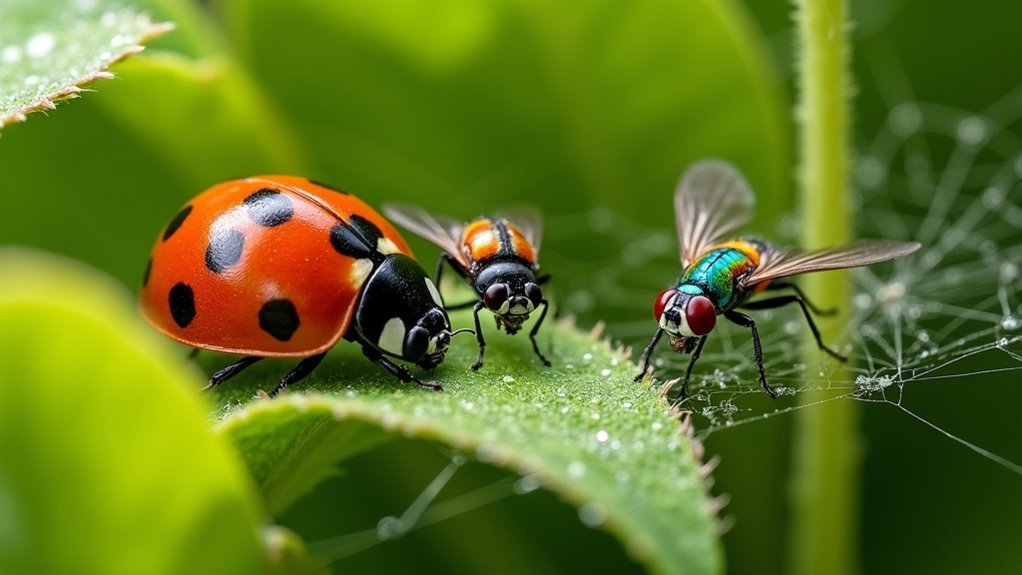You can protect your garden naturally with three powerful organic companions. Plant alliums like garlic, onions, and chives to release sulfur compounds that repel cabbage worms, carrot flies, and slugs while masking your vegetables’ scents. Add fragrant herbs such as basil, mint, lavender, and rosemary to confuse pests and attract beneficial predators. Include nectar-rich flowers like sweet alyssum, cosmos, and marigolds to draw helpful insects that’ll control pest populations. These strategic plantings will transform your garden into a thriving, pest-resistant ecosystem.
Alliums: The Aromatic Pest Barriers

Gardeners have long recognized alliums as powerhouse companions that naturally repel unwanted insects through their potent sulfur compounds. When you plant garlic, onions, and chives alongside your vegetables, you’re creating aromatic natural barriers that effectively deter cabbage worms, carrot flies, and slugs.
These companion planting strategies work by masking nearby plants’ scents, making your vulnerable plants less attractive to pests. You’ll also enhance soil quality while protecting your crops from infestations.
Fragrant Herbs That Mask and Repel
Beyond alliums, aromatic herbs offer another powerful layer of natural pest protection through their intense fragrances that confuse and repel unwanted insects.
Fragrant herbs like basil, mint, and lavender release strong aromas that mask scents from nearby vegetables, making them less detectable to flies and mosquitoes.
Basil, mint, and lavender create aromatic shields that mask vegetable scents, naturally confusing flies and mosquitoes seeking garden targets.
Rosemary and thyme don’t just repel pests—they attract beneficial predators that enhance pest management naturally.
You’ll find sage and catnip essential oils effectively deter aphids and beetles, supporting organic pest control strategies.
Chives and garlic create natural barriers that confuse specific pests targeting your crops.
These herbs provide dual benefits: they enhance your garden’s defense system while offering fresh culinary benefits for your kitchen.
Nectar-Rich Flowers That Attract Beneficial Predators

While aromatic herbs provide excellent pest deterrence, nectar-rich flowers create an equally powerful defense strategy by actively recruiting beneficial predators to your garden.
These companion plants transform your space into a thriving garden ecosystem where beneficial insects like ladybugs and lacewings naturally reduce pest populations.
Sweet alyssum and cosmos attract pollinators while drawing predators that feast on aphids.
Calendula adds vibrant color while supporting effective pest management through beneficial predators.
Marigolds release nematode-deterring compounds and attract helpful insects simultaneously.
Native flowers such as coneflowers and black-eyed Susans provide essential nectar sources that sustain predatory species.
Frequently Asked Questions
What to Plant Next to Veggies to Keep Bugs Away?
You’ll want to plant basil near tomatoes, garlic with cabbage, nasturtiums as trap crops, marigolds throughout beds, and chives next to carrots. These companions repel aphids, whiteflies, nematodes, and carrot flies naturally.
How Do Organic Farmers Keep Pests Away?
You’ll use companion planting with pest-repelling herbs, install physical barriers like row covers, rotate crops seasonally, attract beneficial predators with nectar flowers, and apply homemade organic sprays for immediate control.
What Are Natural Pest Deterrents for Garden?
You can use companion planting with marigolds and nasturtiums, plant aromatic herbs like basil and mint, grow alliums near vulnerable crops, or install physical barriers like row covers to naturally protect your garden.
What Is One Companion Flower That Helps Deter Pests?
You’ll find French Marigolds are excellent companion flowers for pest control. They repel aphids, whiteflies, and nematodes while attracting beneficial insects like ladybugs that naturally eliminate garden pests.
In Summary
You’ll find that these three natural strategies work together to create a pest-resistant garden ecosystem. Plant alliums around vulnerable crops, scatter fragrant herbs throughout your beds, and include nectar-rich flowers to welcome beneficial insects. You’re not just deterring harmful pests—you’re building a balanced environment where nature does the heavy lifting. Start small with one companion type, then expand as you see results in your garden.





Leave a Reply